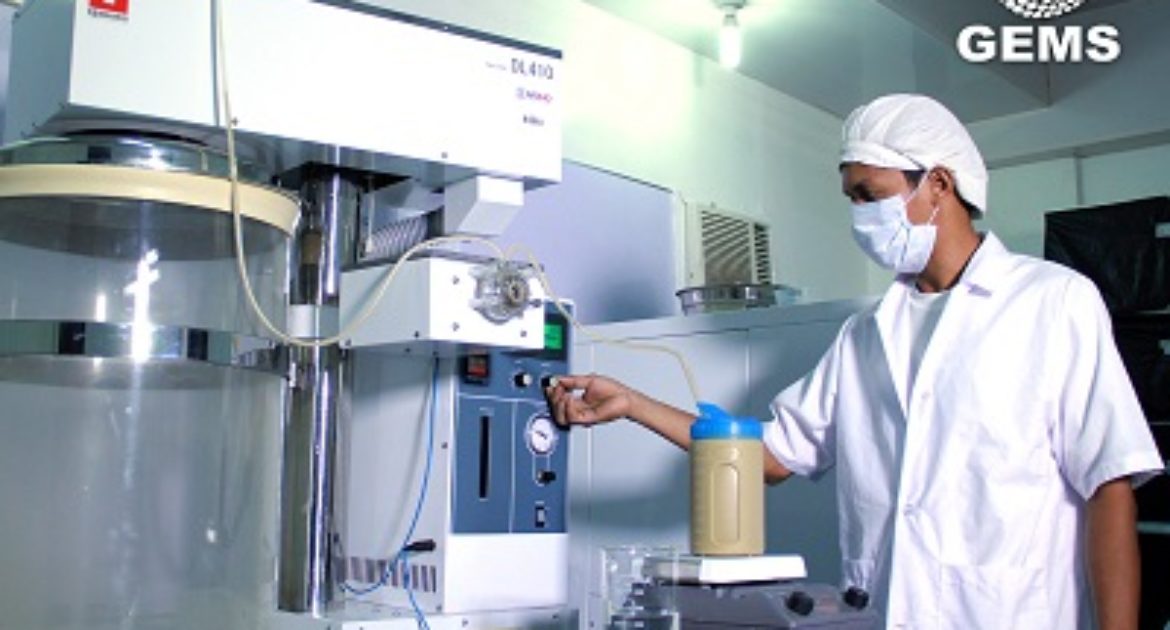GEMS Mango Polyphenols

Mango Polyphenols are bio-active, water-soluble micro-nutrients, which come from pure extracts of mango fruit seeds. This extract is particularly rich in anti-oxidants and have high anti-oxidant activity, which is accounted for its potential health benefits.
The major polyphenol constituents found in mango in terms of anti-oxidative capacity and quantity are mangiferin, isomangiferin, gallic acid, caffeic acid, ferulic acid, cinnamic acid, coumarin, vanillin, and tannin. Catechin, quercetin, isoquercetin, kaempferol, rhamnetin, anthocyanins, ellagic acids, propyl and methyl gallate, benzoic acid, protocatechuic acid, gallotannins, β-glucogallin, flavonoids, flavanone, and gallotannins are also present at different smaller quantities.
Physico-chemical Properties
Purity of extracts 99.5%
(with water ≤ 5%)
Density (tapped) 1.25 g/mL
Total Polyphenols ≥ 100 mg/g powder
(expressed in mg Gallic Acid Equivalents, GAE)
Anti-oxidant Activity:*
≥ 10,000 mmol TEAC/g polyphenol powder
*expressed as TEAC (Trolox Equivalent Anti-oxidant
Capacity) using DPPH (1,1-diphenyl-2-picrylhydrazyl]
Assay.
Shelf-Life: 3 years
Mango Polyphenol powder can also be micro-encapsulated with malto-dextrin, gum arabic, soluble starch, or cellulose fiber without losing bio-activity and efficacy, to further preserve product thermo-stability and shelf-life.
Potential Health Benefits
Polyphenols, especially the fruit- and vegetable-based, are known as a powerful antioxidant that protects the body from premature aging, disease, and decay. They contribute to the prevention of cardiovascular diseases, hypertension, cancers, osteoporosis, and infections. They also have potential in the prevention of neurodegenerative diseases and diabetes mellitus. This is because polyphenol compounds have the capacities to quench lipid peroxidation, prevent DNA oxidative damage, scavenge free radicals and prevent inhibition of cell communication (Masebo and He, 2008).
Clinical and human studies also indicate that one gram of polyphenols is frequently consumed per day and it is not anticipated that any acute or lethal toxicity would be observed through the oral intake route.
Reference including literature cited herein:
Masebo and He 2008. Major Mango Polyphenols and Their Potential Significance to Human Health. Comprehensive Reviews in Food Science and Food Safety 2008, 7(4), 309-319.
In a Nutshell
Green Enviro Management Systems, Inc. is the first company in the Philippines and the world that industrialized a green technology of converting mango wastes from mango-processing industries into marketable products.
Contact Info
Welcome to our Website. We are glad to have you around. If you need to contact us, you can use the details below.
Phone: +63 32 260 43 31
Office: Bankal Road, Lapu-lapu City, 6015 Cebu, Philippines
Email: [email protected]
